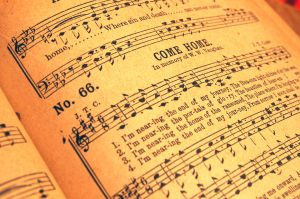No Little People
Francis Schaeffer’s No Little People is a book of 16 sermons delivered at L’Abri Fellowship in Switzerland. My reading of it follows on the heels of Schaeffer’s True Spirituality, and reinforces my appreciation for the strengths of his thoughtfulness and vision. There are some quotations from the book at this site, as well as a listing of other writings by this author.
As its title suggests, the theme that ties these sermons together is the difference between our view of our significance as limited human beings, and God’s view. The sermons are not a “series” per se; they’re not a planned, systematic progression into this subject. Rather, they represent a variety of approaches, some topical, some expository. Taken altogether, they are unanimous in their unfolding of a biblical view of persons that stands in sharp and freeing contrast to the one suggested to us by our own inner estimations, and those of our present-day world.
There’s a real value to reading more than one book at a time by the same author. I found that reading this right after True Spirituality hammered home some of the distinctives of Schaeffer’s thought, the most significant (to me) being his ability to articulate the biblical worldview against a context of other worldviews, and to identify the ways that our lives and institutions can incorporate strands that are inconsistent with what we profess. In a matter-of-fact way, he keeps a firm context in the history of ideas, fleshes out biblical history around various passages, and draws distinctions between philosophical emphases. It helps to drive home an understanding of the intellectual forces at work in every area of life, and to increase consciousness of them.
Schaeffer is eminently rational, and I appreciate this as well. But it never turns into intellectualism. Always he keeps the beam shining on the importance of a living faith, not a merely intellectual one. But he always keeps in view the fact that our faith, our knowledge of God, begins with propositional truth stated in our space-time world — the divine intersecting with our human experience at specific times and places, and speaking in our language.
I have to acknowledge that my reading didn’t do these sermons full justice. The ideal setting would be in a reading group where they could be studied and savored. That’s not a possibility in my life right now. While reading them one after the other, armed with a pencil for underlining but no one to discuss them with, had the advantage of getting the big picture of themes accumulating and building, I also recognize the disadvantage of not absorbing them and processing them as fully as I’d like. Probably I’ll revisit this book, stored away for now as a treasure chest of valuable, distinctive insights and perspective.


